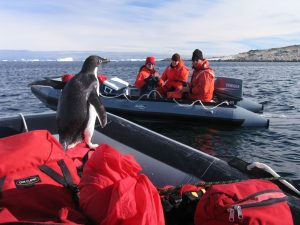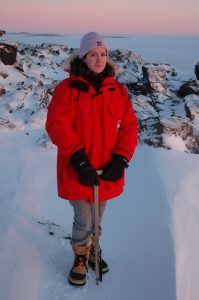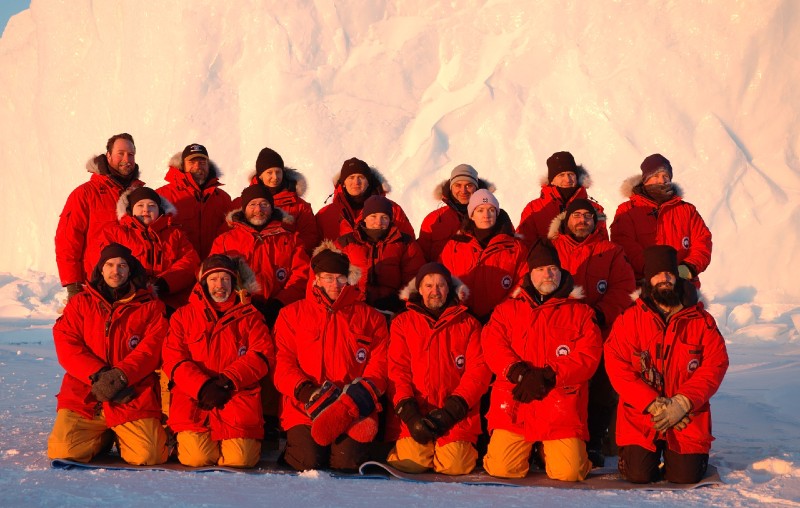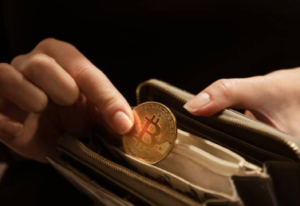Leadership is challenging in the best of times. During times of crisis, leadership is an art. The past six months have forced millions into their homes for long periods of isolation, halting routines and destabilizing support structures.
Industry leaders from every field were forced to adapt their businesses, accommodate a remote staff, support their families, and pivot to entirely new roles. The majority of human interaction is taking place via video conference. Most are seeing coworkers on Zoom more often than friends or loved ones in person.
Leadership has taken on new significance. CEOs and managers have become personal confidants.
Coworkers are relying on each other for emotional support. Let’s face it, having a virtual window into one another’s homes is only serving to tear down the barriers between business and personal life.
So, what do leaders need to know to successfully guide their staff through this period of isolation and uncertainty?
Innovation & Tech Today spoke with Rachael Robertson, the second and youngest female expedition leader to oversee the research team in Antarctica’s Davis Station. For twelve months, Robertson lived and worked with her team of 18 around the clock in one of the world’s most isolated and extreme environments.
She’s written two best-selling books: Leading on the Edge: Extraordinary Stories and Leadership Insights from the the World’s Most Extreme Workplace and Respect Trumps Harmony: Why Being Liked is Overrated and Constructive Conflict Gets Results. In this exclusive interview, Robertson shares her most valuable lessons from more than twenty years of leadership.
Innovation & Tech Today: Prior to your expedition, you were overseeing some of Australia’s largest national parks. But, you noted in Leading on the Edge that you weren’t particularly outdoorsy or familiar with cold weather. How did you prepare for the challenges you would face in the Antarctic?

Rachael Robertson: I read, read widely. I read everything I could find on Antarctica. Every book, every article. I spoke to previous expeditioners. I thought I was well prepared, but nothing could have prepared me.
Now, I liken it to parenthood, that you can read all the books on parenthood and you can talk to other parents, but it’s only when you’ve got that baby waking you up every few hours to be fed that you realize, “Wow, that’s what they were talking about when they said, ‘Get some sleep.'”
It’s sort of like it’s an intellectual thing, but when you live down there — it’s visceral, you feel the cold. When you’re reading about it and trying to prepare for it, it’s just an intellectual thing.
And to actually experience it was something else. I think the thing that overwhelmed me the most, that I was not prepared for at all despite being in leadership roles close to 20 years, was the 24 hour a day scrutiny on the leader.
It’s because there’s not much else going on. It’s boring and there’s nothing much to do. So, they noticed everything I did: where I sat for meals, what time I started, what I chose to eat.
On Sunday mornings, if I [slept in] because we don’t work on Sunday mornings, that was noted. It just overwhelmed me that I was being watched the whole time. I could walk around the station to visit the different teams — the phone would ring and it would be someone looking for me.
I actually said out loud, “How did they know I was here?” And they said, “Well, we just… we know where you are.” That level of scrutiny just blew me away.
I had to learn how to manage it and how to stop them knocking on my bedroom door at 10 o’clock at night because I just wasn’t prepared for that.
I&T Today: Do you think the scrutiny was partially a product of the isolation?
Rachael Robertson: I do. I think it was the isolation, largely because there are no distractions. We don’t have videoconferencing.
That’s the case even today. I was talking to a group about this the other day, that even the United States Antarctic program is the same.
All of the stations are the same. We don’t have videoconferencing, we don’t have Zoom or Google, MS Teams or Google Meet, or any of those because we don’t have the bandwidth and we need to keep the bandwidth free and available for science data.
At any particular moment in time, we’re getting scientific data uploaded from the stations back to the United States or back to Australia. We can’t clog that system up with videoconferencing. So we haven’t even got the distraction of downloading a Netflix show.
I think it was the isolation of no distractions. And I also think there was a certain element of gender. I was a female boss and the fact that most of the men had female partners back home. I think they were missing having that partner to talk to, to debrief and just catch up.
Because I was the woman there, I think I had to be very mindful that even though I was their leader, I wasn’t their wife or their partner. I didn’t get involved in their personal issues unless it was around mental health and the way they were coping on station.
Otherwise, I had to gently steer them back towards their families or the employee assistance program over the phone.
I&T Today: It sounds like your gender added an extra layer of complexity to your relationship with your staff. They were looking to you for emotional support in addition to professional support.
Rachael Robertson: I think you are spot on. I spoke to some of my male counterparts, the male station leaders, and they didn’t describe the same experience. So I do think it was that, and I don’t think it was a deliberate thing.
I think it was just borne of socialization that for their entire lives, they had a mother, or they had a wife or a girlfriend or a partner who would support them emotionally and suddenly they don’t have that. It’s gone.
All of the things we use to keep us resilient are gone, but the primary person in your life isn’t isn’t there. So I think there genuinely was a gender aspect to it.
They certainly revealed things to me that I don’t think they would reveal to a male leader around vulnerability which — that was the upside of it — that they would actually reveal to me if they were having a bad day or they were struggling a bit mentally, which was great because it meant I could do something about it.
There was none of this bravado, there was none of the false, “Yeah, we’re really tough. Everything’s great,” because I knew some of my team were fathers and I thought that they would miss their children.
They’re not going to see that little face for a year. So of course they’re going to miss their families. And so having a female leader in one sense was an advantage because they felt safe and vulnerable enough to reveal that to me.
But the downside for me was I certainly had to learn how to do the emotional stuff, handling the baggage and the weight of the emotions of these people, and very gently deflect them towards professional help if they needed it.
Because I just couldn’t be that person for all 17 of them, around the clock. I just couldn’t do it. It would destroy me.
It’s sort of like when the cabin crew on the plane, when they do that flight briefing and they say, “Put your oxygen mask on yourself before you help those around you.” And I kept thinking of that, thinking:
“I need to look after myself first so that I can be strong for people around me because I can’t walk out. I can’t resign. I can’t come home. I’m here for a year. I’ve got no choice in that. So I need to look after myself first and foremost so that I’ve got the emotional capacity to care about others.“

I&T Today: I think that’s very relevant to what many leaders are experiencing right now. People aren’t able to connect with their friends and loved ones in the capacity they normally would, so business leaders are having to pick up that emotional weight to help their employees get through this time.
Rachael Robertson: They truly are. And because we’re talking to people in their homes as bosses, we’re talking to people via computer in their homes, we’re coming into their homes. And so they’re more likely to be more open and talk about what they’re experiencing.
The tough part for leaders is not only are we leading our teams or our businesses or our companies, we’re also leading our families.
For myself, I’ve got an 11 year old son, and even though I’m leading my business and my team, I still have to go and lead him. So, I have to be optimistic and I have to be positive.
When he looks at me and says, “Mom, will it be okay?” I have to be optimistic and say, “Of course it will. We don’t know when this lock down will end. We don’t know when things will get back to normal, but we’ll get there. We’ll get through this and I’m here.”
We have to reassure our family as well. It’s a whole weight of expectation on leaders at the moment, 24/7. Now, I think all of the leaders will have an inkling of what it’s like to lead in Antarctica, where you just don’t [quit].
And even if I came downstairs for breakfast and I might be a bit tired, people would interpret that as something perhaps had gone wrong. And they’d say, “Is everything okay? You know, with us, with the expedition, or is the ship still coming to collect us in October, like it was planned to?” I said, “I just had a rough night’s sleep, that’s all.”
It was extraordinary because normally when you go to work, you have that space between when you leave home and when you arrive at work, that you can mentally collect yourself and you can pull yourself together and get in the frame of mind for, “I’m going to work now.”
But, when you’re working and living in the same place, it’s nearly seconds from when you leave, get out of bed and leave your bedroom to when you are suddenly in front of your people. It’s not a lot of time to collect your thoughts and put your game face on. I think every leader will be experiencing that.
Every leader will be having times, particularly if you’re managing your own business, where you’re worrying about cash flow at the moment and how the business will survive.
And then suddenly, you have to lead your family as well. It’s really important that leaders have that peer support around them and talk to other leaders about how they’re doing because it’s a crazy, crazy time at the moment.
I&T Today: In Leading on the Edge, you talked about how it was important for you to reflect in the evenings and write in your journal. Do you think that that’s a tool leaders could employ now to gain some perspective on their decisions?
Rachael Robertson: For me, it was absolutely compulsory. It did two things: It got the emotion out. It was never, “Oh, today, I took the quad bike out and I photographed penguins.” It was more around, “This is how I’m feeling. This person’s driving me crazy, I wish I could send them home.”
It was quite cathartic and it meant I could sleep better. I wasn’t waking up at three o’clock in the morning worrying about things and churning things over in my mind. We all know the link between sleep and resilience, so when you’re sleeping well, you’ll be strong and resilient. If you’re not sleeping well, it’s hard to cope with things.
So the journal got that emotion out and meant that I slept better, which meant I could cope with leading this team around the clock a lot better.
But the other thing was, in terms of my own self awareness, I had no one tapping me on the shoulder saying, “Oh, you’ve got that wrong or, you got that right.” So I’d write in the journal and then I could reflect.
I’d look back and things that I probably would have ascribed or assigned to cabin fever. So things I might’ve thought, “Oh, that’s just cabin fever. We’ve been in lockdown now for six months and they’re all just gone a bit silly.”
It was only through reflecting that I recognized it was never cabin fever. It was my leadership. It was decisions that I had made incorrectly.
The only way I worked that out was to look in my journal and reflect, because it would have been really easy to write it off as, “Ah, that’s just the guys, they’re just not coping as well right now,” when in fact it was me.
So, whether you keep a journal or whether you have the discipline of just spending 30 minutes every day, almost like being on a balcony and looking down watching yourself as a leader and going, “How did I handle that?” Or, “Did that meeting go the way I thought it should?” Or, “Did that person react the way I thought they might, or is something out of kilter here? Did I have a role in that? What role did I play in that?”
It’s a really important discipline to improve your self awareness and to just reflect on how you’re handling things as the leader.
I&T Today: You led the expedition in 2005 — what was your most valuable piece of technology then and would it be different now?
Rachael Robertson: It was fascinating. Of my team of 18, I only had one person with prior experience and he had been down 10 years earlier, it might have been ’86. He was an older gentleman, and he’d been down in his twenties; I think he was almost 50 now. I asked him “What was the big difference?”
The first difference, he said, was that there were women on station, whereas they weren’t previously. But he said the technology was the interesting thing. And I said, “In what way?” He said, “Well, in the past we’d just send a telegram home. On your birthday, you could send a message home. And it was a really short message. Now we’ve got email, so I can be in touch constantly with my family.”
I asked if that was better and he said, “Well, it’s better and it’s worse. It’s better because now I know everything that’s going on at home. But, it’s worse because now I know everything that’s going on at home.”
What he was saying was previously, on his first expedition in the eighties, he was free to enjoy this big adventure. I’m certain he was concerned about what was going on back home and thinking about his family all the time, but he had no knowledge of what was going on back home.
Whereas now, if the wind blew a gate off its hinges or the dog escaped and was lost in the suburb or one of the children got a cold, he was privy to that knowledge the second time round. So he knew everything that was going on at home.
So not only are you trying to deal with surviving and living in such a really terrible, difficult place to live with intense interpersonal pressure, but you’re also straddling two worlds.
You’re trying to support your family and cope with what’s happening with your family back home. And he actually said, “That’s more difficult than being in this state of not knowing.” And I think the other thing, because we don’t have TV down there, we don’t have news bulletins. We don’t have TV or radio.
So unless you actively seek out the news online, unless you’re reading online news, you have no knowledge of what’s going on in the real world.
So if you chose to, you could actually be living in Antarctica today and be totally unaware of the COVID-19 pandemic. Unless you’d have a bit of a conversation with other people on station, but unless you specifically sought out that information, you won’t get that sort of peripheral knowledge that we hear.
You walk past the television and you hear a news bulletin or you get in the car and the radio does the news portion or you download a podcast and you listen to what’s happening in the world, but you have none of that down there.
I&T Today: Was there a technology you found to be particularly important during your time there?
Rachael Robertson: Well, the difficult thing now is social media. We didn’t have social media down there…
So when we had a plane crash, which stranded four of my people, my big concern was that information being given to the media before we had a chance to talk to the families of the people who were there.
So it was fairly easy to shut down dialogue with my team. This happened in summer, so I had 120 people.
It was easy to call a meeting and say, “Look, before you tell your families, can you just give us a couple of hours to contact the families of the four people who are stranded, just so they don’t hear it second hand and they don’t get too worried about things outside their control?”
I could actually control that sort of story and that narrative, but now with social media, there’s an ability to get the information out there.
I think the technology available now, that we didn’t have when I was there, is for medical emergencies. While we were there, someone needed a wisdom tooth extraction. We were relying on a fax machine — someone faxing diagrams — because we did have the computer up and we were talking on the phone, but it kept dropping out.

I think now we’ve got much better technology and we can use video for an emergency situation. So our doctor is really a general practitioner because they need to be quite broad. They need to be able to operate in a surgery, but they equally need to diagnose a common cold. So they need a real breadth of experience.
When it comes to a specialist thing like a surgery, we have the technology now where they can be coached through the surgery by a specialist somewhere in the world, anywhere in the world, who can actually watch them and have a camera and actually talk them through it. I think that is huge. That’s a really significant change in the medical care and the health care of the people on the station.
I think back to when Dr. Jerry Nelson was at the American station — this is going back 30 years. She was diagnosed with breast cancer while on the station. She actually had to perform the biopsy and start the chemotherapy on herself because they couldn’t evacuate her.
So the American team flew the chemotherapy medicine in, but couldn’t land the plane because it was too cold for the hydraulics, they would freeze. So they just got like, a big parachute, and they dropped the chemotherapy medicine down to the ground.
The team on the ground had mere seconds to collect that medicine and get it into a warm vehicle so it didn’t freeze. She had to do all that on herself using a mirror.
So we rely now on technology way more than the human element, because we can’t invest months and years of training for someone who may or may not need that skill.
You hope that they don’t, you hope they never need to be a theater nurse. That’s why I think the technology has changed healthcare and that access to experts.
I&T Today: When you’re leading a team, why is respect more important than harmony?
Rachael Robertson: It really is. There are three things I worry about when a team focuses on harmony. We want harmony in our communities, in our teams. But when harmony overtakes respect, that’s when things go pear shaped. So when harmony is the number one thing, I think a couple of things happen.
I think any bullying or harassment, it still happens. It just goes underground. So it still goes on, but people won’t report it. They won’t speak up and they won’t speak out. They don’t want to rock the boat. They want to keep the peace.
The second thing is with innovation. So if you’re trying to innovate, if you’re in an industry that relies on innovation and you’ve got a culture of harmony, you won’t get any innovation because people will sit in a meeting and they’ll nod and they’ll agree. And then they’ll walk out and say, “That won’t work.”
One of the reasons for that, is that a culture of harmony, that notion of “Oh, we’ll keep the peace,” results in people not wanting to challenge each other. So when you’re trying to innovate, you need different ideas and different experiences and different thoughts.
The third thing is safety and mental health. When the culture is harmony, that’s when people get hurt. So people will walk past someone who’s doing something unsafe and won’t step in and tell them that’s unsafe. Same with mental health, if the culture is harmonious again, no one puts their hand up and says, “I’m not so great right now.”
You’re much better off going for respect. I did that with my team constantly. So whatever they disagreed on, I would say, “You don’t have to agree with them. You just need to respect that that’s their position, or that’s their value. That’s where they stand.”
And what it does is, it takes a lot of the politics out because I see it around the world a lot now. People are trying to convince other people to come around to their way of thinking. And I think we’d be much better off just respecting they’re entitled to think that way, they’re entitled to that opinion. They’re entitled to live their life that way, as long as it’s not affecting other people.
I think respect is so important and I had it with my team, particularly with the scientists. I had to work really hard to get the scientists to explain what their science program was. “What’s your hypothesis? What are you trying to achieve?” So that I could get the trades team and the non-scientists to understand what they were doing and respect their work and respect their role.
They might not necessarily like each other. We had a lot of cultural differences. People from Germany are quite different to my team from Australia who are quite laid back. The Germans were quite precise and the Australians weren’t, so there was this clash of cultures.

To get around that, I just kept saying, “Look, just respect each other. You just treat each other respectfully. You don’t have to love each other. You don’t even have to like each other. You do have to treat each other with respect.”
The big thing with that was the “no triangles” rule. And that whole thing is about, “I don’t speak to you about X. If I have something to say about X, I go directly to that person. I do not take it to a third party.”
And that was the single most important tool in building respect in the team, because it meant you knew that in a really difficult situation, the last thing we need to worry about is somebody complaining about us behind our backs.
That kept us strong. So when things did go pear shaped, when things went bad like when we had that plane crash, the team were brilliant. They were fantastic, but it wasn’t because we liked each other. It was because we had a foundation of respect and we had a deep respect for every single person on the team.
In Australia, we’re having issues with people who break lockdown and won’t wear masks and things like that. There’s this whole tension around community behavior at the moment. And I think part of it is just stopping and respecting people. Take the politics out and don’t try to convince people that your way’s the right way.
The other thing is to use facts and data. When we use words like always, or never, or everyone, or no one, it was like this ping, this sonar ping. We didn’t use those words [at the station]. We took those words out of the conversation, because if you say to someone, “You always do something, you’re always late.”
For example, “You’re always late for work.” That word “always,” makes people really emotional. They’ll say, “Well no, yesterday I was 30 minutes early.” So we took those words out and my team would not come to me and say, “Everyone thinks it’s a bad idea,” because I’d challenge that.
I’d say, “Everyone? Well, it’s not everyone. It’s you.” So we can have those difficult conversations because we took out the emotion. We took out all of those absolute words, like always and never and everyone and no one. I do it at home because if I say to my son, “You always leave the wet towels on the floor in the bathroom.”
He’ll say, three days ago he picked them up and it’s true. Three days ago, he probably did pick them up. So if I use facts and I use data and I say, “This is the second time this week I’ve asked you to pick the towels up.” That’s a fact that you can’t argue with.
I think that takes the heat and the emotion out of these conversations. If we could rely on facts and data, that would change a lot of what’s happening in the world.











